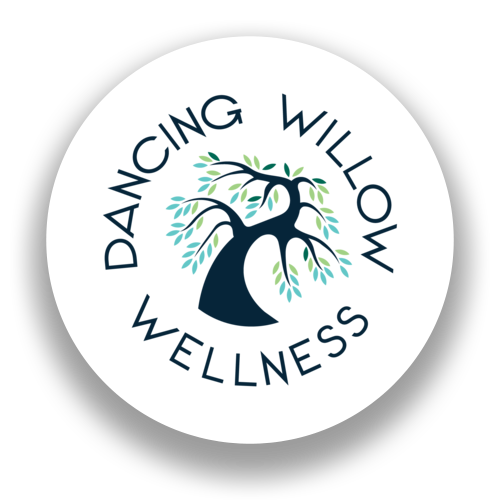
Counselling & Psychotherapy
Mental Wealth is a term Dancing Willow Wellness uses with conviction. Even in your most vulnerable and troubled moments, you have a deep well of resilience and possibility to rely on.
We all run into problems in life, and struggle with how we are seeing and being in the world, and sometimes, we just don’t have the tools for the job. This is where counselling can help!
Whether you are the black sheep, or have been labeled with not being neurotypical (i.e. ADHD, ADD, OCD, differences in learning ability), or are feeling overwhelmed, or uninspired (but want to be inspired), Dancing Willow Wellness offers a variety of means for you to gather and apply the tools you will need to help build your Mental Wealth.
We offer a safe space, for you to be you, and to say the things you’ve been struggling to say. We also offer straightforward, no-nonsense counselling, providing practical advice and time-tested strategies that can give you the tools you need to overcome whatever obstacles you’re up against and to get your life back on track. We know that the last thing you want is to sit around talking about the problem forever; you want solutions, and we’re here to help you find them.
So why waste time banging your head against a wall, pretending the problem doesn’t exist, or being afraid to face it head on, when solutions and options are just a phone call away?
If any of this feels familiar, we’re here to help:
Stress
Addiction
Work life balance
Anger management
Family mediation
Conflict resolution
Relationship boundaries
Feeling comfortable in your skin
Grief
Anxiety
Depression
Life transitions
“To have mental wealth is to possess the knowledge, skills and resilience to maintain and enjoy great mental health, even in tough times. Mental Wealth helps us to thrive and protects us from having poor mental health. Mental wealth is something everyone has a right to.”
“Do or do not. There is no try.”
More info about counselling & psychotherapy.
How do I know if counselling / psychotherapy can help me?
If you’re ready to work on the challenges that are bothering you, then counselling or psychotherapy may help you!
Do I address my mental health, my addiction or both?
Studies have shown that addressing both mental health and addictions concerns at the same time is the best practice, and produces the highest success rate. Including a counsellor or psychotherapist, who is experienced in guiding clients to a healthier lifestyle, will increase your likelihood of recovery tremendously.
How do we address my mental health and addiction concerns?
We use the latest scientifically researched techniques with change talk, thoughts/behaviour restructuring, motivation and empowerment to help you develop goals and skills to manage symptoms of these challenges to lead the life you want.
How do I help a family member or a friend?
Mental health and addictions affect everyone involved, and everyone deserves to receive support throughout the process. We receive referrals from family and friends seeking support for a loved one, as well as themselves. We can help provide support in addressing the concerns from all parties in a safe, neutral group setting; or provide individual support for friends and family members.
What happens in my first session?
Our first meeting is a casual session beginning with an informal intake interview. We’ll discuss the current challenges you’re facing as well as any contributing factors and then develop a plan to move forward.
What can I expect at follow-up sessions?
Follow-up sessions are used to re-evaluate concerns, progress on goals, and to implement other options as necessary. There’s always a certain amount of trial and error involved in finding the solutions and techniques that work best for you.
How many sessions will I need to solve my problem?
The number of sessions needed will be discussed in the intake session. Our goal is to provide emotional support and guidance through challenges you may face, giving tools and encouraging you to develop skills to lessen the effects of these challenges in your daily life. Some individuals may feel only a few sessions are effective, whereas others may benefit from ongoing sessions.
Is counselling available virtually?
We do offer virtual options if required, however in person sessions are recommended to provide the best support.
Is counselling or psychotherapy covered by my insurance?
Some insurance plans offer coverage for counselling. Most insurance plans offer coverage for psychotherapy. If you are wondering if your plan covers counselling or psychotherapy, please be sure to contact your insurance company or check your insurance guide book to confirm what your coverage includes.
